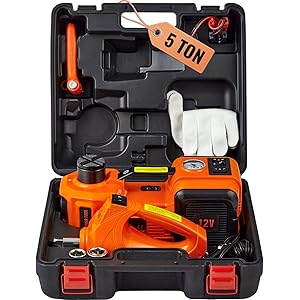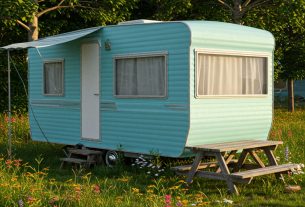As a proud homeowner, I often find myself pondering the nuances of property value and what drives it. One subject that frequently arises in conversations is the depreciation of trailer homes, also known as mobile homes. To many, this might seem like a niche topic, but it holds substantial significance in the broader housing market. In this article, I want to explore why trailer homes depreciate, the factors that contribute to this phenomenon, and what it means for potential buyers and current owners alike.
The Basics: Understanding Trailer Homes
Before diving into depreciation, it’s essential to understand what a trailer home is. Trailer homes are prefabricated houses that are built in factories and transported to their final location. They come in various sizes and styles and can be placed in mobile home parks or on private land. Unlike traditional homes, mobile homes are often viewed as personal property rather than real estate, which is a key factor in their depreciation.
The Depreciation Dilemma
When I first learned that trailer homes typically depreciate in value, I was taken aback. After all, a home is a significant investment, and one would expect its value to appreciate over time. However, the reality is that many trailer homes lose value, and there are several reasons for this trend.
1. Classification as Personal Property
One of the primary reasons trailer homes depreciate is their classification as personal property rather than real estate. This classification affects financing, insurance, and resale value. Traditional homes are considered real estate, which tends to appreciate over time due to factors like location and demand. In contrast, trailer homes, often viewed as movable and less permanent, face a different set of rules.
2. Market Perception
The perception of trailer homes plays a significant role in their depreciation. Many people still associate trailer homes with lower socioeconomic status or transient living situations. This stigma can lead to lower demand, impacting resale values. According to a study by the Manufactured Housing Institute, while the number of manufactured homes has increased, public perception remains a barrier to appreciation.
3. Quality and Construction Factors
Another critical factor is the quality of construction. Many older trailer homes were built with materials that do not stand the test of time. For instance, models manufactured before the 1976 HUD Code often lack the quality standards that newer homes possess. As a result, older models may require significant repairs or renovations, further diminishing their value.
4. Location, Location, Location
Just like traditional homes, the location of a trailer home significantly impacts its value. Homes situated in high-demand areas tend to hold their value better than those in less desirable locations. However, trailer parks often experience fluctuations in demand based on their surroundings, which can lead to increased depreciation if the area declines.
5. Economic Factors
The broader economic landscape also influences trailer home values. For example, during economic downturns, many people opt for affordable housing solutions, resulting in increased demand for trailer homes. However, this demand is often short-lived, and once the economy stabilizes, the market for trailer homes may diminish, leading to depreciation.
Case Studies: Real-World Examples of Depreciation
To better understand how these factors play out in the real world, let’s examine a couple of case studies that highlight the depreciation of trailer homes.
Case Study 1: The Impact of Location
Consider a trailer home located in a well-maintained mobile home park in a burgeoning suburb. Initially, the value of this home may appreciate as the surrounding area develops, with new schools and shopping centers attracting families. However, if the local economy takes a downturn and businesses close, the demand for housing in the area may decrease, leading to a decline in the trailer home’s value.
Case Study 2: The Stigma of Ownership
In another example, a family purchases a trailer home in a community with a negative reputation. Despite the home being well-maintained and affordable, potential buyers are deterred due to preconceived notions about trailer living. As a result, the family struggles to sell the home years later, facing steep depreciation due to the area’s stigma.
Strategies to Mitigate Depreciation
As I delved deeper into the topic, I began to wonder: are there ways to mitigate depreciation for trailer homes? The answer is yes! Here are some actionable strategies that can help maintain or even increase the value of a trailer home:
- Invest in Quality Upgrades: Make improvements that enhance the home’s appeal and longevity, such as modern appliances, energy-efficient windows, and updated roofing.
- Choose the Right Location: When purchasing a trailer home, consider the long-term potential of the area. Opt for locations with growing job markets, good schools, and safe neighborhoods.
- Maintain the Home: Regular maintenance is crucial. Keeping the home in good condition can help prevent depreciation. This includes routine inspections, repairs, and landscaping.
- Stay Informed: Understanding the local market can help you make informed decisions about selling or upgrading your home. Being aware of economic trends can help you time your investment wisely.
- Embrace the Community: Being an active member of the mobile home community can improve the overall perception of trailer living, which can positively impact property values.
The Future of Trailer Homes
As I reflect on the future of trailer homes, I see both challenges and opportunities. The growing trend toward affordable housing solutions means that trailer homes could see a resurgence in popularity, especially as more people seek budget-friendly living options. However, overcoming the stigma associated with mobile homes will require concerted efforts from homeowners, communities, and policymakers.
Changing Perceptions
To change public perception, we must highlight success stories of families living in trailer homes who have invested in their properties and improved their communities. Advocating for better zoning laws and improved infrastructure in mobile home parks can also help shift the narrative surrounding trailer homes, making them more appealing to potential buyers.
Innovation in Design and Sustainability
Innovations in design and sustainability are also paving the way for the future of trailer homes. Manufacturers are increasingly focusing on creating energy-efficient, modern, and aesthetically pleasing designs that appeal to a broader audience. This shift can help elevate the status of trailer homes and contribute to their appreciation over time.
Conclusion: The Truth About Trailer Home Depreciation
In conclusion, the depreciation of trailer homes is a multifaceted issue influenced by classification, market perception, quality construction, location, and economic factors. While the challenges are significant, there are strategies that homeowners can employ to mitigate depreciation and even enhance their home’s value. As we move forward, changing perceptions and embracing innovation will be crucial in redefining trailer homes as viable and valuable housing options.
As I wrap up this exploration, I encourage you to join the discussion. Share your thoughts on trailer homes and their depreciation in the comments below. Have you experienced this firsthand? What strategies have you found effective? Let’s continue the conversation!
Frequently Asked Questions (FAQ)
1. Why do trailer homes lose value faster than traditional homes?
Trailer homes are often classified as personal property, which typically depreciates, unlike traditional homes classified as real estate that usually appreciate over time.
2. Can I increase the value of my trailer home?
Yes! Investing in quality upgrades, maintaining the home, choosing a desirable location, and improving community perceptions can help increase the value of your trailer home.
3. Are there any financing options available for trailer homes?
Yes, some lenders offer financing for manufactured homes, but the terms may differ from traditional home mortgages. It’s essential to shop around and understand your options.
4. What should I look for when buying a trailer home?
Consider the home’s condition, location, community reputation, and potential for appreciation. It’s also wise to inspect the home thoroughly and review its history.
5. How can I mitigate the stigma associated with trailer homes?
Engaging with your community, maintaining your property, and sharing positive stories about trailer living can help change perceptions over time.
If you found this article informative, please consider signing up for our newsletter for more insights and discussions on housing topics. Don’t forget to share this article with friends and on social media to spread the knowledge!
VEVOR Electric Car Jack, 5 Ton/11023 LBS Hydraulic Jack Lift with Electric Impact Wrench, Built-in Inflatable Pump, and LED Light for SUV MPV Sedan Truck Change Tires Garage Repair
$79.54 (as of November 15, 2025 07:52 GMT -03:00 - More infoProduct prices and availability are accurate as of the date/time indicated and are subject to change. Any price and availability information displayed on [relevant Amazon Site(s), as applicable] at the time of purchase will apply to the purchase of this product.)
Sign up for our newsletter and stay up to date with exclusive news
that can transform your routine!





